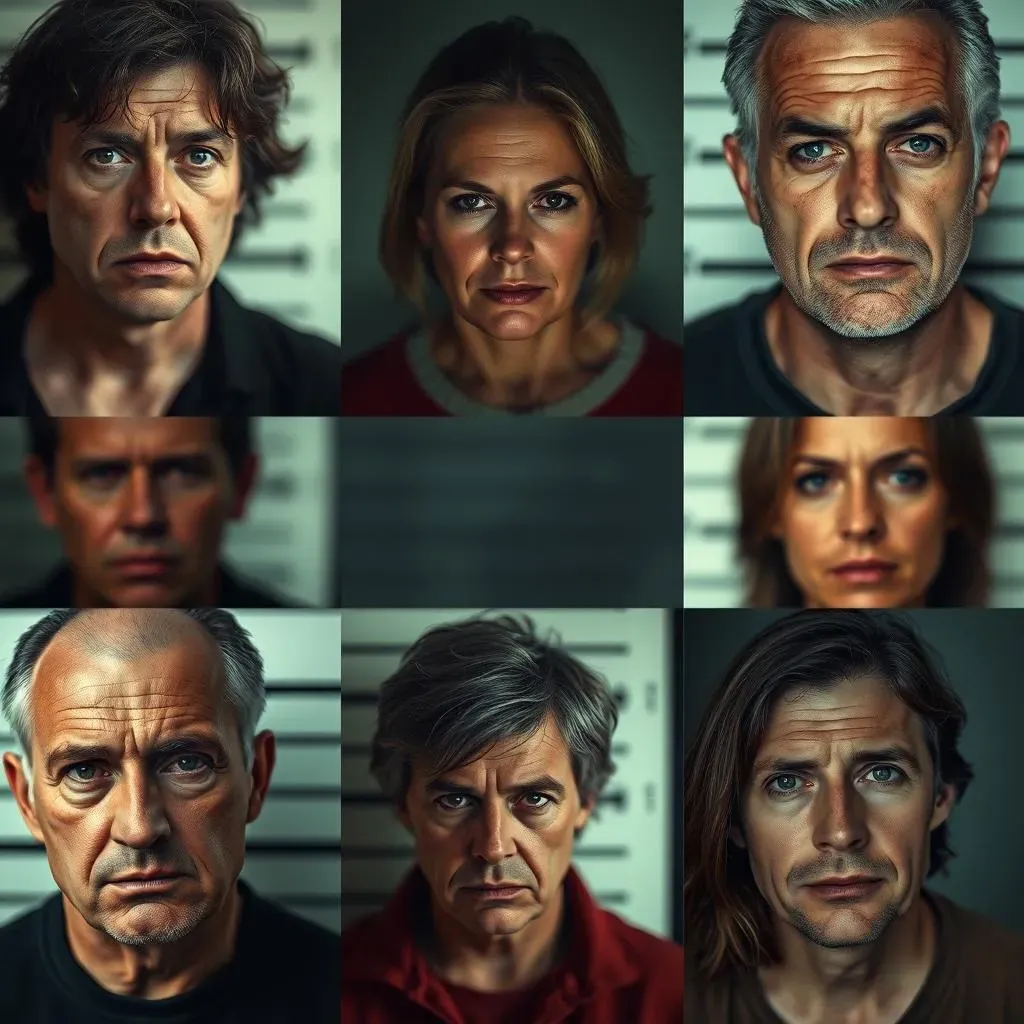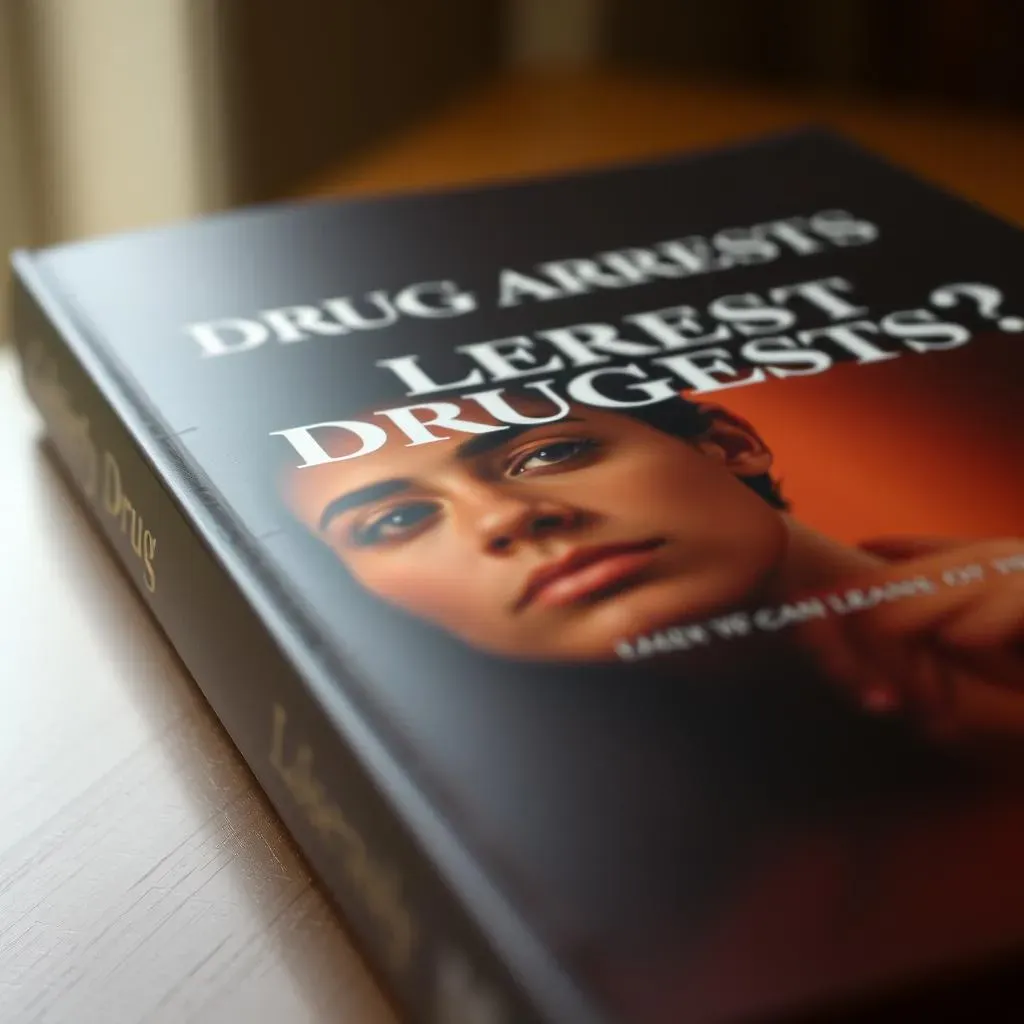Table of Contents
We often see them on screens, living seemingly perfect lives, but the reality for some celebrities is a darker struggle. The world of fame and fortune can be a breeding ground for addiction, leading to the stark reality of celebrity drug arrests. This article isn't about judging; it's about understanding. We'll explore why these arrests happen, looking at the unique pressures that celebrities face. We'll go behind the mugshots to share some of the heartbreaking stories of addiction, highlighting the very real human beings behind the headlines. But, it's not all gloom. We'll also examine the paths some celebrities have taken toward recovery, finding hope in their journeys. Finally, we'll think about what we can learn from these experiences, using their struggles to better understand the complexities of addiction. This article will guide you through the highs and lows of celebrity drug arrests, offering a compassionate look at a complex issue.
The High Price of Fame: Why Celebrity Drug Arrests Happen

The High Price of Fame: Why Celebrity Drug Arrests Happen
The Spotlight's Glare
Imagine living your life under a microscope. Every move, every word, is scrutinized, judged, and often twisted by the media. That's the daily reality for celebrities. This intense pressure to maintain a perfect image, to be constantly "on," can be incredibly taxing. It's like being in a never-ending performance, where the lines between your public persona and private self become blurred. The constant scrutiny can lead to high stress, anxiety, and a sense of isolation, creating a breeding ground for self-medication through drugs or alcohol. It's not an excuse, but it's certainly a reason why some celebrities seek an escape, no matter how harmful it may be.
Think of it like this: you're a plant, constantly under bright lights, with everyone watching how you grow. You might start to feel stressed, maybe a little wilted. Some plants might try to find their own shade, and some might not. It's a similar situation for celebrities, except their shade might come in the form of substances. It's a way to turn down the noise, even if it’s only temporary.
Easy Access, Empty Spaces
Another big factor? Money and access. Celebrities often have the financial means to obtain drugs easily, and the lifestyle that can normalize substance use. Parties, private jets, and entourages can create an environment where drug use is not only available, but even encouraged. It's like having a candy store on every corner – the temptation is always there. But, it's also important to remember that many celebrities have a lot of "yes" people around them. They might not have anyone who will be honest with them, and those who do might not be heard.
Beyond easy access, there’s also the issue of empty spaces. Fame can be incredibly isolating. Even surrounded by people, many celebrities feel alone. The constant travel, the lack of privacy, and the pressure to perform can all lead to a feeling of emptiness. That void, coupled with the easy availability of drugs, makes it easy to see how they can fall into a cycle of addiction. It's a sad truth that the very thing that makes them famous can also contribute to their downfall.
Pressure Point | Description | Impact on Substance Use |
|---|---|---|
Constant Scrutiny | Living under intense media and public observation. | Increased stress and anxiety, leading to self-medication. |
Financial Resources | Having ample money to obtain drugs. | Easy access and normalization of substance use. |
Social Isolation | Feeling alone despite being surrounded by people. | Creates a void that substances may temporarily fill. |
Lack of Honest Feedback | Surrounded by "yes" people who do not provide helpful criticism. | Enables continued use without accountability. |
Behind the Mugshot: Stories of Celebrity Drug Struggles

Behind the Mugshot: Stories of Celebrity Drug Struggles
The Fall From Grace: Public Scandals
The mugshot. It's a stark image, a moment frozen in time, capturing a celebrity at their lowest point. It's the visual representation of a fall from grace, a public acknowledgment of a private struggle. These photos often go viral, becoming symbols of addiction's power, and the very public nature of these arrests amplifies the shame. Think of Lindsay Lohan, her mugshots a visual timeline of her struggles with addiction. Or Robert Downey Jr., whose journey from arrest to sobriety has been equally public. These aren't just pictures; they're snapshots of pain, loss, and the often-destructive nature of addiction. The public gets a glimpse, but it rarely sees the whole story.
The media circus that surrounds these arrests can be brutal. Every detail is dissected, every mistake magnified. It's like watching a car crash in slow motion, and the public, unfortunately, is often the rubbernecking audience. For the celebrities, it can feel like a betrayal of their privacy, a stripping away of their humanity. The constant judgment and scrutiny can make it even harder to seek help, making the path to recovery all the more difficult. It's a vicious cycle: the public scandal fuels the addiction, and the addiction fuels more scandals.
Hidden Battles: The Private Pain
But behind every mugshot and scandalous headline, there's a person struggling with very real pain. Many celebrities battle addiction in secret, hiding their struggles from the public eye. They might be smiling for the cameras, attending glamorous events, but behind the scenes, they're fighting a war within themselves. We hear stories of Whitney Houston, a powerhouse vocalist whose addiction was a hidden torment for years, or Heath Ledger, whose private struggles ended in tragedy. These are reminders that addiction doesn't discriminate; it can affect anyone, regardless of their fame or fortune. It's a disease that thrives in the shadows, often hidden from view until it's too late.
These private battles often stem from deeper issues: trauma, depression, anxiety. The addiction is often a symptom, not the core problem. For some celebrities, the pressure of fame can exacerbate these underlying issues, making it harder to cope. They use drugs or alcohol as a way to numb the pain, to silence the inner critic, to escape the demands of their public lives. It’s a temporary fix, a band-aid on a deep wound. Sadly, the temporary relief often leads to a spiral of addiction, making the journey to recovery even more difficult.
From Arrest to Recovery: Paths to Healing After Celebrity Drug Arrests

From Arrest to Recovery: Paths to Healing After Celebrity Drug Arrests
The First Step: Acknowledging the Problem
The journey from arrest to recovery is never easy, and it often begins with a difficult first step: acknowledging the problem. For celebrities, this can be especially challenging, given the public nature of their lives. Admitting they have an addiction means facing not only their own inner demons but also the judgment of the world. It requires immense courage to break through the denial and admit that they need help. This moment of truth can come in various forms – a court order, an intervention from loved ones, or a personal realization that enough is enough. It's like hitting rock bottom, but it's also the solid ground from which they can start to rebuild. Think of it as the first day of a very long and tough hike. You have to start somewhere, and that start is often the hardest part.
Once the problem is acknowledged, the next step involves actively seeking help. This might mean checking into a rehabilitation center, engaging in therapy, or joining a support group. It's a process that requires commitment and a willingness to change. Celebrities often have access to top-tier treatment programs, but even the best resources can only work if the individual is truly dedicated to recovery. It’s not a quick fix; it’s a long-term commitment to a healthier life. It's like learning a new language; it takes time, patience, and a lot of practice to get it right.
Finding the Right Support: Therapy and Community
Recovery isn't a solo journey; it requires a strong support system. Therapy plays a crucial role, helping celebrities to understand the root causes of their addiction and develop coping mechanisms. It's like peeling back the layers of an onion, revealing the underlying issues that fuel the cycle of substance use. Individual therapy, group therapy, and family counseling can all provide invaluable tools for healing. It gives them a safe space to explore their feelings, work through trauma, and learn how to navigate life without relying on drugs or alcohol. Think of therapy as a compass, guiding them on their path toward sobriety.
Beyond therapy, community is also essential. Support groups, like Alcoholics Anonymous or Narcotics Anonymous, offer a sense of belonging and understanding. They provide a space where celebrities can connect with others who have similar experiences, sharing their struggles and triumphs. This sense of community can combat the isolation that often accompanies addiction. It's like finding your tribe, a group of people who truly understand what you're going through. This support network can be a lifeline, providing encouragement and accountability throughout the recovery process. It's about learning that you're not alone in this fight.
Recovery Step | Description | Key Components |
|---|---|---|
Acknowledgment | Recognizing the addiction problem. | Breaking through denial, facing public scrutiny. |
Seeking Help | Actively engaging in treatment. | Rehab, therapy, support groups. |
Therapy | Exploring the root causes of addiction. | Individual, group, family counseling. |
Community | Connecting with others in recovery. | Support groups, shared experiences. |
Celebrity Drug Arrests: What Can We Learn From Their Experiences?

Celebrity Drug Arrests: What Can We Learn From Their Experiences?
The Universality of Struggle
One of the most important things we can learn from celebrity drug arrests is that addiction doesn't discriminate. It doesn't care about fame, fortune, or talent. It's a disease that can affect anyone, regardless of their background or social status. Seeing celebrities, who often seem to have it all, battling addiction helps to shatter the myth that it's a problem only for "others." It shows us that beneath the glitz and glamour, they're just as vulnerable as anyone else. This realization can foster empathy and understanding, helping us to move away from judgment and towards compassion. It's a reminder that we're all human, capable of making mistakes and needing help.
Their stories also highlight the complex nature of addiction. It's not just about willpower or making bad choices; it's often a result of a combination of factors: genetics, environment, trauma, and mental health issues. For celebrities, the intense pressures of fame can exacerbate these factors, making them more susceptible to addiction. Understanding these complexities is crucial for addressing the problem, not just for celebrities, but for everyone. It's a call to look beyond the surface and recognize that addiction is a multifaceted issue that requires a nuanced approach.
The Power of Hope and Recovery
Despite the often-bleak picture painted by celebrity drug arrests, there's also a powerful message of hope and recovery. Many celebrities have openly shared their journeys to sobriety, demonstrating that it's possible to overcome addiction, even after hitting rock bottom. Their stories of perseverance and resilience can inspire others who are struggling, offering a tangible example that change is achievable. It's like seeing someone climb a mountain that you thought was impossible. Their success can give you the courage to start your own climb.
These public displays of recovery can also help to destigmatize addiction. When celebrities talk openly about their struggles, it normalizes the conversation and encourages others to seek help without shame. It sends a message that addiction is a health issue, not a moral failing, and that recovery is not only possible but also something to be celebrated. It's about creating a culture of understanding and support, where people feel safe to reach out and ask for help. That’s the most valuable lesson we can take away from their experiences. It’s not just about their journey, it’s about all of us.
Lesson | Description | Impact |
|---|---|---|
Universality of Struggle | Addiction affects everyone, regardless of status. | Fosters empathy, reduces judgment. |
Complexity of Addiction | Multiple factors contribute to addiction. | Encourages nuanced understanding. |
Power of Hope | Recovery is possible, even after hitting "rock bottom". | Inspires those struggling with addiction. |
Destigmatization | Public recovery stories reduce shame. | Encourages help-seeking behaviors. |